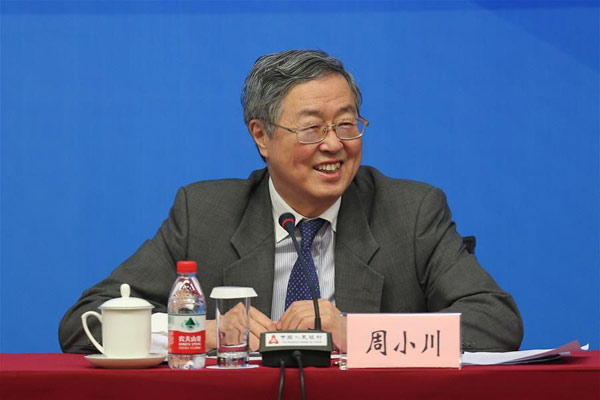 时刻新闻
时刻新闻

Zhou Xiaochuan, governor of China's central bank, the People's Bank of China (PBC), addresses media at a press conference as the G20 Finance Ministers and Central Bank Governors Meeting opens in east China's Shanghai, on Feb. 26, 2016. [Photo/Xinhua]
SHANGHAI -- China will continue its prudent monetary policy, the head of the central bank said on Friday.
China will not "overly" base its macroeconomic polices on exterior economic performance or capital flow, said Zhou Xiaochuan, governor of the People's Bank of China, at a press conference ahead of the G20 Finance Ministers and Central Bank Governors Meeting in Shanghai.
China has consistently opposed the competitive currency depreciation that some countries have used to boost export strength, Zhou said.
China has seen remarkable exports, and its goods trade surplus hit nearly $600 billion last year, he said.
He admitted that China is facing debt pressure, as its debt/GDP ratio is relatively high, posing a challenge to macroeconomic management.
But observers should consider three important factors alongside the high debt level, Zhou said.
First, China's saving rate is high, up to nearly 50 percent, much higher than about 10 percent in many countries. Most savings have gone into the banking system, and some into the bond market, and these institutions have turned the savings into debts, pushing up the debt level.
Second, China's immature stock market has limited the size of equity financing, hence debt is still a major means of financing, said Zhou.
Third, wealth accumulation in China started only in the end of 1970s when the country began the reform and opening-up drives. As Chinese citizens and businesses become richer, they will borrow less in investment, he said.



